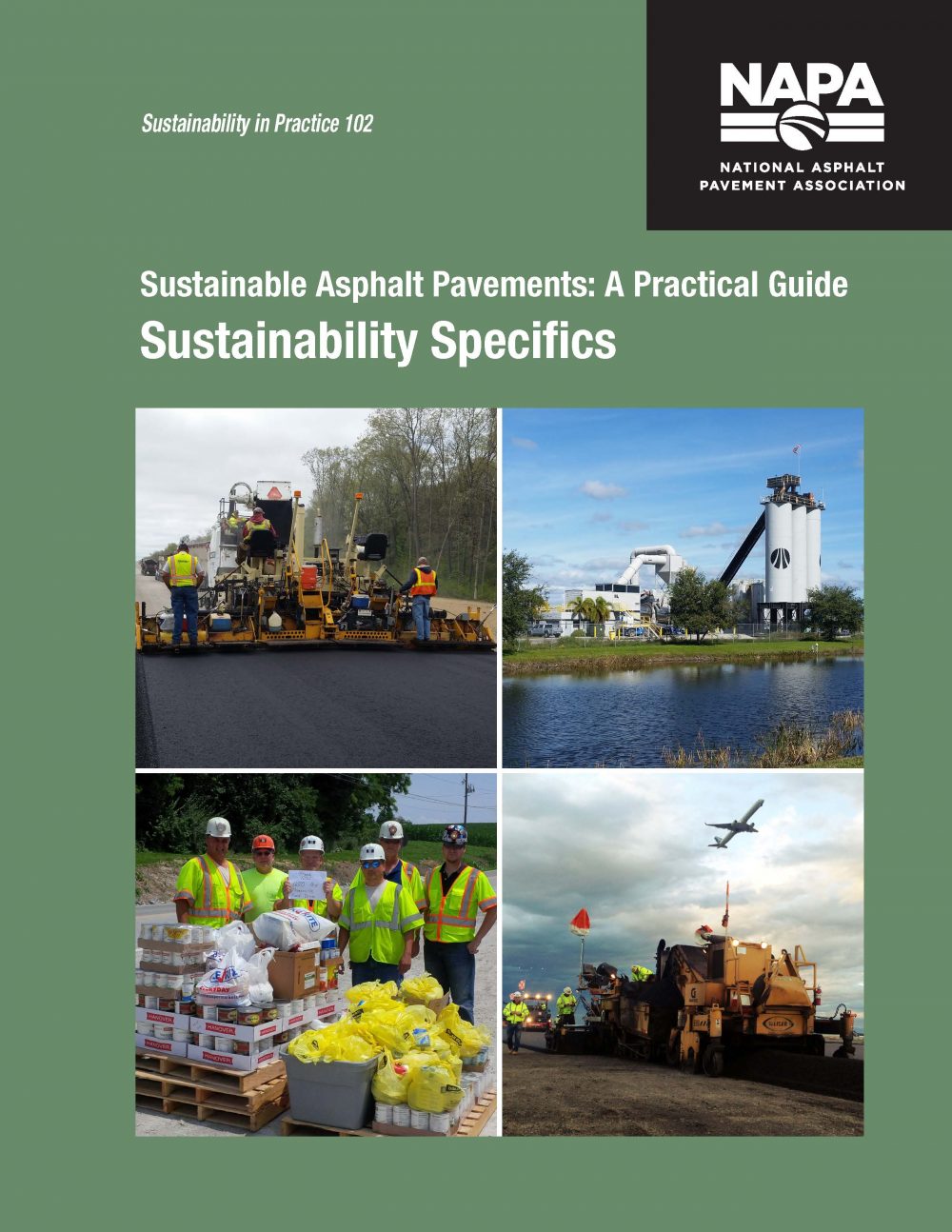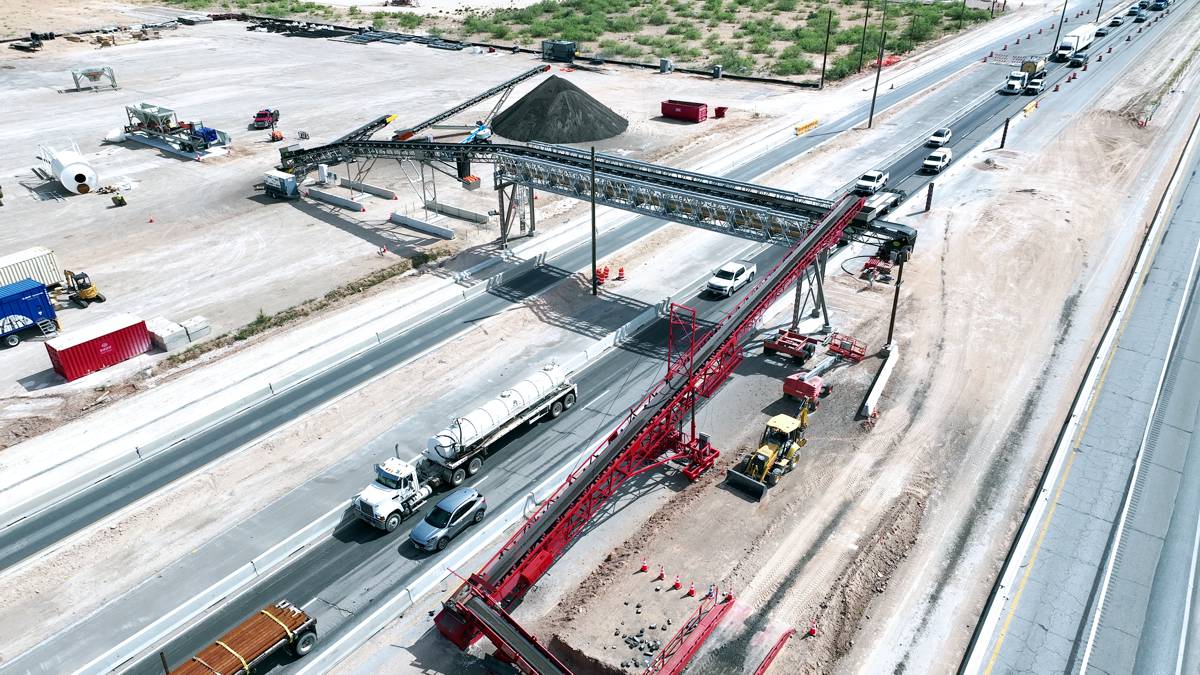NAPA Practical Guide Series highlights Asphalt Sustainability
The second book in the Sustainable Asphalt Pavements: A Practical Guide series, “Sustainability Specifics,” is now available. The 62-page Asphalt Sustainability book outlines 92 specific actions to boost sustainability for asphalt pavement projects, as well as in production and construction operations.
“These documents provide a useful reference for asphalt mix producers, contractors, agencies, and consulting engineers who want to incorporate sustainability into their day-to-day activities,” said Joseph Shacat, Director of Sustainable Pavements for the National Asphalt Pavement Association (NAPA).
Authored by Stephen T. Muench, Ph.D., P.E. of the University of Washington and Adam J. Hand, Ph.D., P.E. of the University of Nevada, Reno, the Sustainable Asphalt Pavements: A Practical Guide series is being released over the course of 2019. Book one, “Sustainability Overview,” was released in February and the remaining two volumes will be released in the third and fourth quarters. Each volume is accompanied by a webinar explaining how the concept of sustainability can be applied in asphalt pavement production and road construction. The webinars and books are all accessible here.
“Identifying and implementing sustainable practices has social, environmental, and economic benefits for asphalt mix producers, road owners, and communities,” said Shacat. “‘Sustainability Specifics’ is designed to help recognize sustainable practices a company or agency is already applying, as well as to help identify new actions that they can take.”
Asphalt pavements offer some inherently sustainable characteristics — in particular, they are fully recyclable. Each year about 79 million tons of old asphalt pavement removed during resurfacing and maintenance operations are put to use in new asphalt pavements. This reduces the need for raw materials and keeps some 48 million cubic yards of material out of landfills.
The Sustainable Asphalt Pavements: A Practical Guide series was developed with the support of the Federal Highway Administration through the Accelerated Implementation and Deployment of Pavement Technologies (AID-PT) program.
The National Asphalt Pavement Association (NAPA) is the only US trade association that exclusively represents the interests of the asphalt producer/contractor on the national level with Congress, government agencies, and other national trade and business organizations. NAPA supports an active research program designed to improve the quality of asphalt pavements and paving techniques used in the construction of roads, streets, highways, parking lots, airports, and environmental and recreational facilities.
The association provides technical, educational, and marketing materials and information to its members; supplies product information to users and specifiers of paving materials; and conducts training courses. The association, which counts more than 1,100 companies as members, was founded in 1955.






























